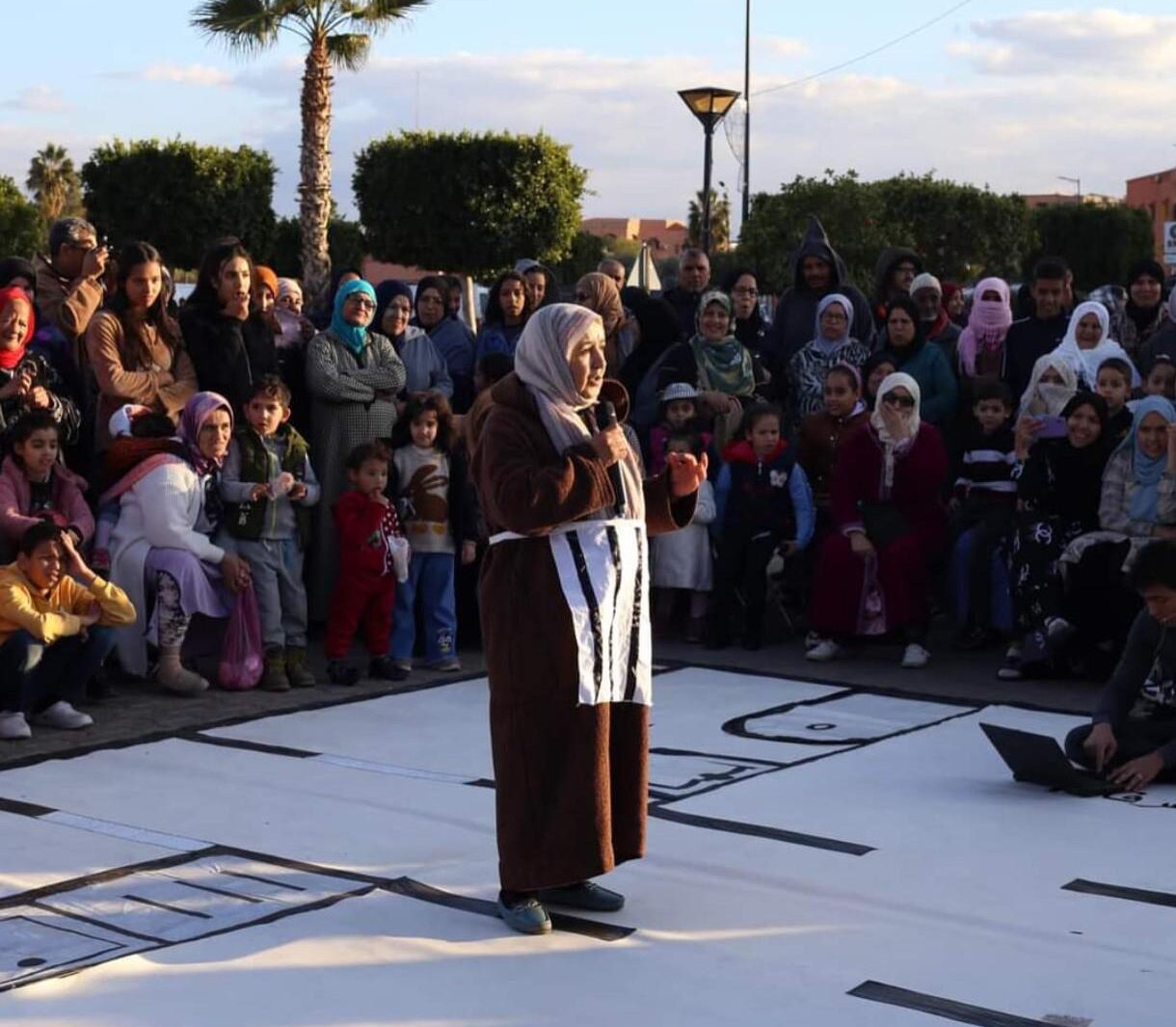After a year of global turbulence and deepening crises, 2025 offers both new challenges and opportunities for human rights defenders. Fund President and CEO Gabriela Bucher reflects on the current state of human rights and shares her outlook for the coming year.

Dear Fund Community,
As I have gotten to know so many extraordinary activists, donors, and staff over my first full year at the Fund for Global Human Rights, determination and courage have been constants. It’s easy to wallow at the state of the world and its interlocking crises, but I regain hope each time I see how much can be achieved by refusing to accept injustice.
Over the last year, we bore witness to significant headwinds and alarming trends on multiple fronts. Fund grantees—and human rights defenders around the world—are dealing with intersecting challenges and threats including conflicts and political violence around the world, rising inequalities, authoritarianism and the erosion of democracy and civic freedoms, and the deepening climate crisis.
These compounding threats and challenges require us to think bigger and bolder, and to use our collective power to support frontline rights defenders as they elevate their demands in policy spaces from the most local to the planetary. I have found it energizing to discuss the innovative strategies and tactics that Fund grantee partners are using to take on the most intractable problems. And I want to share that energy with you—our community of supporters and allies—as we embark on a new year.
In September 2024, I joined Fund staff and donors on a trip to meet with grantee partners in Morocco. I was reminded once again of the ingenuity of groups operating in restrictive contexts. One organization we met with, Gorara, uses techniques of the theater of the oppressed to challenge a status quo that has normalized discrimination of certain groups. I experienced firsthand how impersonating different roles and unveiling patterns to shift power dynamics can help lead the way to possible solutions. I could really see how this feeling of agency would be infectious for young people whose experience of personal freedom has been limited.
I was also privileged to meet Alema. As a young woman, Alema pledged to be a protector of all women victims of domestic violence. Herself a survivor, she was shunned by neighbors and friends for defying stereotypes and daring to take on a role that was not seen as appropriate for a woman. The Fund gave Alema an initial grant of $5,000 almost 20 years ago. When I met with her, Alema told me how much she valued that early support. Not only could she invest this funding in her work to address injustices that she had previously been powerless to change, but she was also moved by the confidence and belief that my colleagues at the Fund showed her.
Today, Alema runs a large community organization that has supported hundreds of women over the years. She is not only respected by those same neighbors who shunned her, but her local municipality regularly consults her on issues affecting women because they recognize that her perspective brings about solutions informed by real lived experience. For example, she encouraged the municipality to invest in more streetlights that would help women feel safe—an idea they hadn’t even considered. I am so proud that the Fund has backed Alema throughout this journey. And I’m even more proud to say that Alema’s organization is so strong and sustainable that she can now continue without our support.
Alema’s story is testament to our central belief that nothing can replace firsthand understanding and lived experience as key levers for change. That belief, along with our core values—respect, integrity, sustainability, agility, and inclusivity—will remain the bedrock of our approach as we face new and known challenges in the year ahead.
In 2025, we will experience headwinds that test our strength and resources. The ongoing assault on free civic space will continue to imperil the lives and work of human rights defenders around the world. The rise of far-right populist and authoritarian movements threatens democratic governance and our fundamental freedoms. And all of this is happening in a context of increasing conflict and climate crisis.
But despite the challenges and setbacks, we have hope. And in these troubled times, having hope is both radical and transformative. Around the world, we are working with our partners to counter anti-rights agendas and authoritarianism with resourcefulness and creativity. As we look ahead to COP30 in Brazil, the vitality of the climate justice movement has never been more pronounced—or necessary. And the grantee partners we support continue to inspire us with their courage, resilience, and vision.
Through good times and bad, we have been guided by our commitment to each other, to our global community, to our goals and vision, and to our values. With this grounding, we are continuing to adapt to meet the challenges ahead.
Our renewed strategic focus is on the importance of addressing interconnected issues and driving long-term systemic change, rather than short-term solutions to symptoms of injustice. Our attention is on groups who are building communities of resilience, on women who are showing the way of the possible, on young people with the knowledge and imagination to challenge the injustices they have experienced.
Because working together—across these interlinking ecosystems of collaborative and complementary activists, organizations, and movements—we can realize the full promise and potential of human rights. Our commitment, then, is to continue doing what we do best: investing in the power of human rights activism to expand justice, dignity, and fundamental freedoms.
With deep gratitude for your support and wishes for a healthy, prosperous new year,
Gabriela Bucher
President and CEO
Sign up to our newsletter
Add some impact to your inbox.
By submitting this form, you accept that your data will be stored and processed in line with our Privacy Policy.


